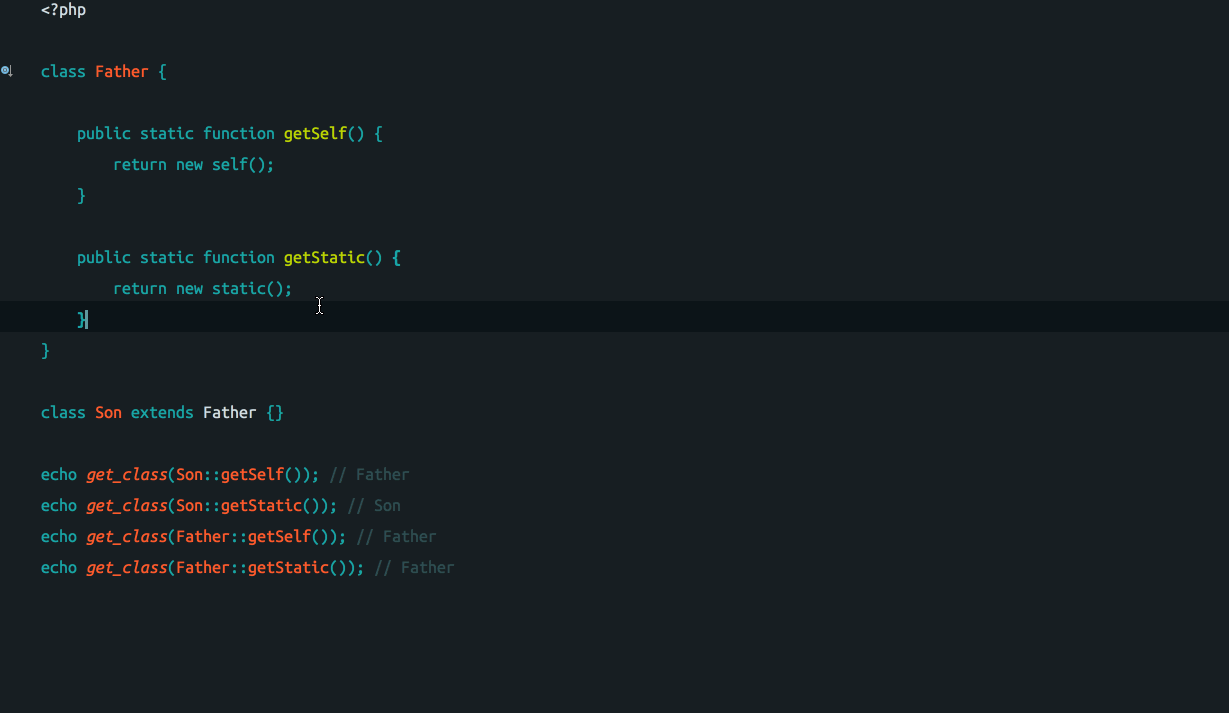Home >Backend Development >PHP Tutorial >Detailed explanation of PHP new static and new self
Detailed explanation of PHP new static and new self
- 高洛峰Original
- 2017-02-21 15:29:431302browse
Use self:: or __CLASS__ to statically refer to the current class, depending on the class in which the current method is defined: using static:: is no longer parsed to the class in which the current method is defined, but is calculated at actual runtime. . It can also be called "static binding" because it can be used for (but is not limited to) calls to static methods.
I was recently asked a small question in the comments of a video: Are there any special considerations when choosing to use static instead of self here? Or we can change the question like this:
What are the specific new static and new self of PHP?
In fact, it should be very clear if we look at an example:
class Father {
public static function getSelf() {
return new self();
}
public static function getStatic() {
return new static();
}
}
class Son extends Father {}
echo get_class(Son::getSelf()); // Father
echo get_class(Son::getStatic()); // Son
echo get_class(Father::getSelf()); // Father
echo get_class(Father::getStatic()); // Father
Pay attention to this line hereget_class(Son::getStatic()); The class Son is returned, which can be summarized as follows:
new self
1.self returns the class where the keyword new in new self is located, such as Here's an example:
public static function getSelf() {
return new self(); // new 关键字在 Father 这里
}
always returns Father.
new static
2.static Based on the above, it is a little smarter: static will return to execute new static( ) class, such as Son execute get_class(Son::getStatic()) returns Son, Father execute get_class(Father::getStatic()) returns Father
and in the absence of inheritance, it can be considered that new self and new static returns the same result.
Tips: You can use a good IDE to read comments directly. For example, PhpStorm:

For more detailed explanations of PHP new static and new self, please pay attention to the PHP Chinese website!

